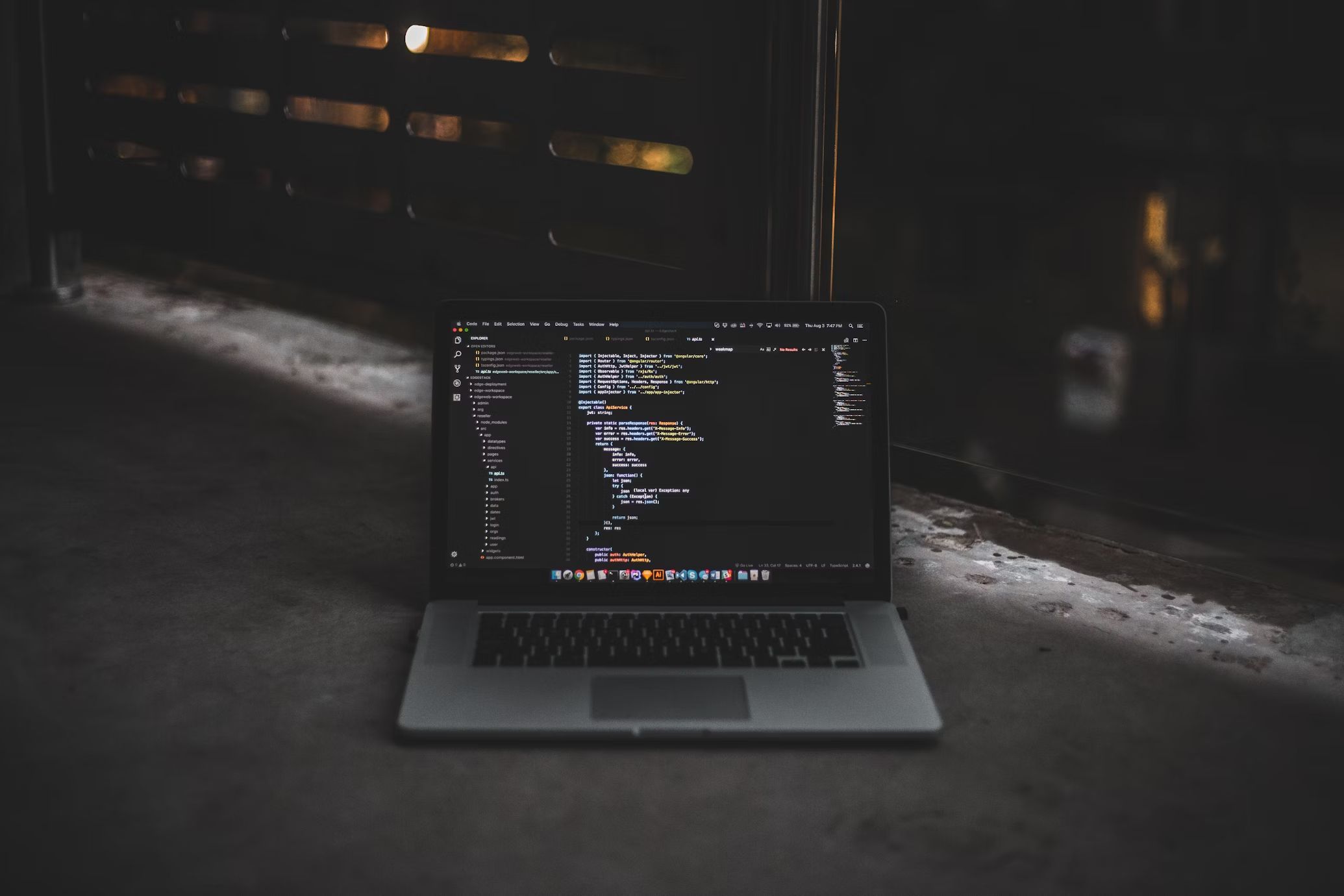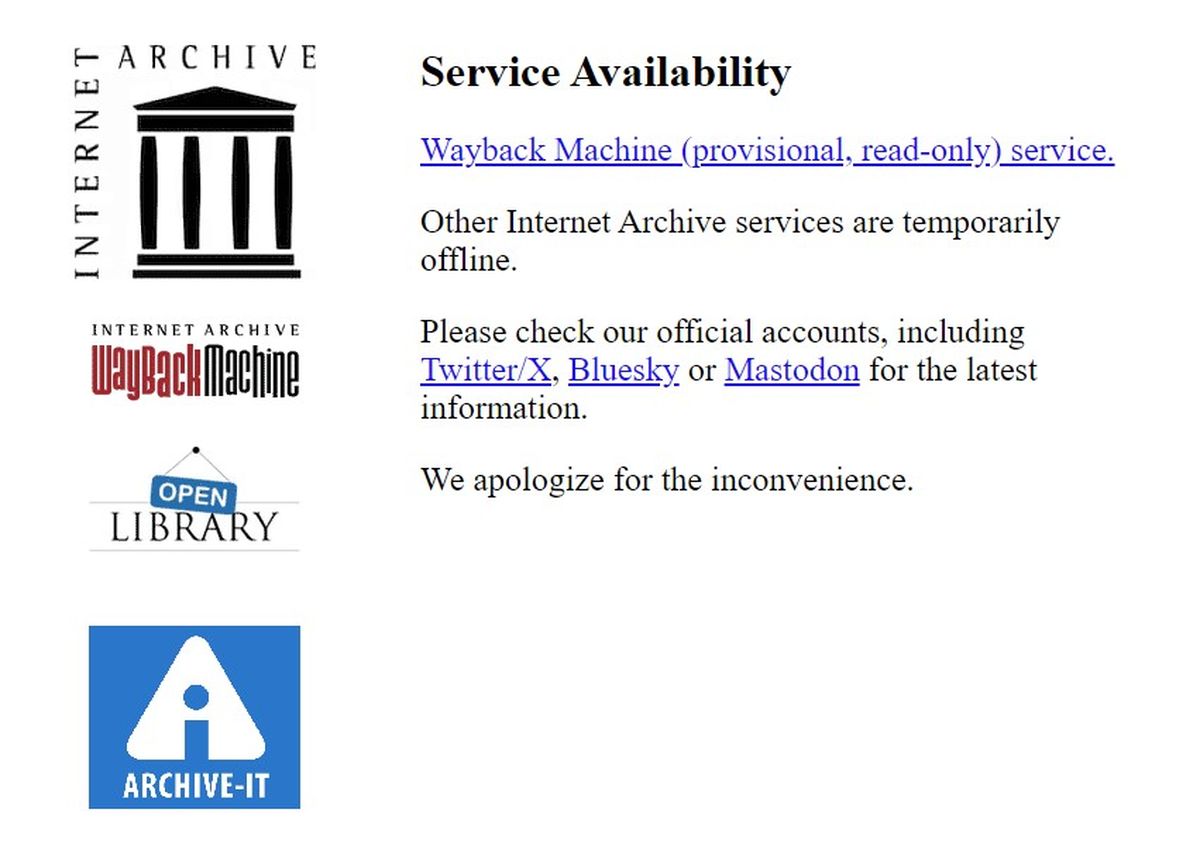and the distribution of digital products.
Internet Archive data breach status: BRB within days

The Internet Archive is gearing up to return “within days,” following a cyberattack that temporarily shut down the platform’s vast digital library and the Wayback Machine, exposing millions of users to data theft. Founder Brewster Kahle confirmed the news as his team worked around the clock to secure the site and strengthen its defenses against future breaches. But what exactly happened, and how should we rethink our assumptions about the security of public digital resources?
The data is safe.
Services are offline as we examine and strengthen them. Sorry, but needed. @internetarchive staff is working hard.
Estimated Timeline: days, not weeks.
Thank you for the offers of pizza (we are set).
— Brewster Kahle (@brewster_kahle) October 11, 2024
What’s the status of the Internet Archive data breach?Last week, we reported the Internet Archive data breach that compromised over 31 million user accounts, sending shockwaves through the Archive’s global community. The scale of the attack was revealed when visitors to the site were met with a pop-up warning of the breach. It didn’t take long for Troy Hunt, founder of the widely used Have I Been Pwned (HIBP) platform, to confirm the severity of the situation. Hunt received a file containing sensitive data from the breach, which included email addresses, screen names, and bcrypt-hashed passwords—an all-too-familiar pattern in today’s world of cyberattacks, according to a BleepingComputer report. It was a serious reminder for millions of users that no platform, not even one as respected and resource-rich as the Internet Archive, is immune to these threats.
This was no simple breach. The attackers orchestrated a coordinated effort that included a Distributed Denial of Service (DDoS) attack alongside the data theft, briefly taking the Internet Archive offline. While we’ve grown used to hearing about such attacks on tech giants and social platforms, the breach of an organization like the Internet Archive—often regarded as a digital safe haven for historical records and research—hits differently. The implications stretch beyond the exposure of personal data; it’s a direct threat to the preservation of digital history.
 The Internet Archive is gearing up to return within days (Image credit)
The Internet Archive is gearing up to return within days (Image credit)
But what’s even more unsettling is the unclear motive behind the attack. Jason Scott, an archivist at the Internet Archive, took to Mastodon to share that the attackers didn’t issue demands or ask for a ransom. Instead, they seemed driven purely by the desire to disrupt and destabilize, leaving the digital community wondering what’s next? The group claiming responsibility, identified as SN_Blackmeta on X, had previously targeted the Internet Archive in May. This suggests a pattern of ongoing attempts to undermine the platform’s operations, raising concerns that we’re only seeing the beginning of a sustained campaign of attacks.
Brewster Kahle and his team worked hard to quickly mitigate the damage. They disabled the compromised JavaScript library used to deface the site and began upgrading their overall security protocols. Kahle hinted that the aggressive nature of the hackers means that more attacks could be looming on the horizon but assured the public that user data remains safe despite the current downtime.
For now, visitors to the Internet Archive’s site will be greeted by a notice stating that it’s “temporarily” offline, with no access to the Wayback Machine. According to Kahle, this is a necessary precaution while the team works to bolster its defenses. “The data is safe. Services are offline as we examine and strengthen them. Sorry, but needed,” he explained in a public statement, estimating that the platform will be back up in days rather than weeks.
 The current status of Internet Archive (Image credit)
The current status of Internet Archive (Image credit)
The broader question this breach raises is: How secure is the digital record of our collective memory? The Internet Archive is no ordinary platform—it’s a critical repository of knowledge, culture, and history. When such an essential service is compromised, it shakes our confidence in the Archive’s ability to protect itself and in the security of all public digital archives. This isn’t just about one attack; it’s about the growing vulnerability of the systems we rely on to preserve the past.
The internet of trusted things
As the Archive works to recover, users must face an uncomfortable truth. The platforms we trust with our personal data—and, more crucially, our collective digital heritage—are under constant threat. The real question isn’t whether the Internet Archive will be back online soon (it will), but whether we’re prepared for what comes next. Will we hold platforms accountable for their security failures, or will we allow the threat of cyberattacks to become just another part of digital life?
The Internet Archive will soon be operational again, but the repercussions of this breach will likely resonate long after its services are restored. This attack is a warning, and we’d be wise to pay attention. The question is, will we?
Featured image credit: Kerem Gülen/Unsplash
- Home
- About Us
- Write For Us / Submit Content
- Advertising And Affiliates
- Feeds And Syndication
- Contact Us
- Login
- Privacy
All Rights Reserved. Copyright , Central Coast Communications, Inc.